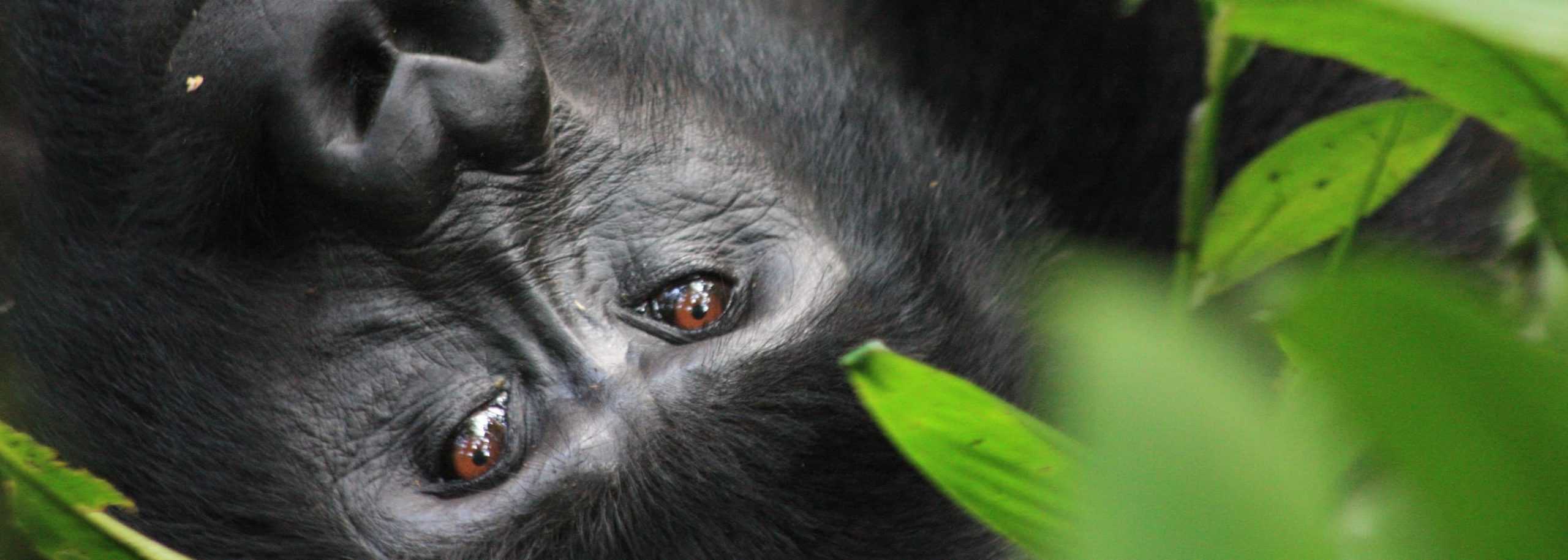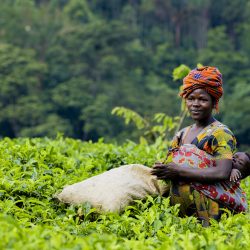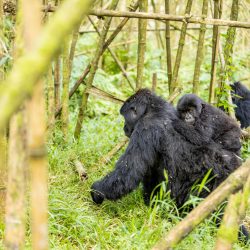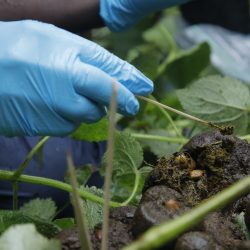The Rainwater Harvest Tank that Transformed a Village!
Blog | 4/10/22
2018 is a year that did not leave Claire Nsenga, a resident of Karuhura Village in Buhoma Town council around Bwindi Impenetrable National Park the same! A high school student then, she had learnt about reproductive health but barely thought she would unexpectedly be the closest aid to a woman in labour, in an inappropriate and inconvenient place! Now 23, Claire narrates her ordeal.
“It was around 6:00 pm as I hurriedly went to the reservoir to fetch water after school. Little did I know that on the way, I would meet a random pregnant woman in labour, and I was the only person available to help,” narrates Nsenga.
To cut the long story short, Nsenga had to run uphill again, seek a team of strong men who helped her carry the pregnant woman to the not-so nearby hospital. Nsenga and other Karuhura village residents affirm that undergoing labour for women while hiking the hill from fetching water was a common occurrence! This they owe to the hilly sloppy terrain of the path from the reservoir as well as the 3 km distance between their residence and the reservoir. Lack of water in proximity didn’t only affect women but also the entire village well-being!
“School dropouts increased because children would not handle trekking long distances to school and water reservoir,” says Guard Mutabazi, Resident and Chairman for the Water User Committee in Karuhura Village. Other problems caused by lack of water included poor domestic hygiene, Human Wildlife Conflict where some village members encroached on the protected areas in search for raw material to compensate for the lost time spent on fetching water and a group of village elderly people who were not attended to because no one would take the responsibility to fetch them the much-needed water.
The good news is, the above issues were addressed in 2019, when the International Gorilla Conservation Programme donated a huge rainwater harvest tank to the village through Bwindi Mgahinga Community Development Association. The rainwater harvest tank has the capacity to store 30,000 litres of water and serves 20 homes housing about 80 people. A water user committee was formed to ensure equal sharing and proper maintenance of the tank; however, the committee has surpassed its mandate to sensitize the village towards unity and development. This has brought about a transformed way of living. The committee meets weekly with all the community members and on the agenda is how to achieve domestic hygiene, advice on investing in small scale agri-businesses, voluntary acts to take care of the elderly and nutrition, among others.
“At the end of meetings, families commit to doing at least one best practice to present the next time we meet. This has instilled accountability and created a communal development spirit, “says Chairman Mutabazi. As a result, domestic and personal hygiene have improved, nutrition has improved, and many homes have invested in kitchen vegetable gardens. Improved agriculture has been achieved while the elderly are well taken care of. “These meetings have opened our eyes towards domestic hygiene. For example, cleaning kitchen utensils was optional for me before, but I now boast of a clean kitchen with a utensil rack. Thi has improved my children’s health,” says Racheal Kusiima, a mother. Owing to easy access to water, cases of unexpected labour have reduced and mothers-to-be get all the time to prepare for their babies’ arrival.
According to Henry Mutabaazi, IGCP -Uganda Country Coordinator, “Supporting park-edge communities is a great tool towards achieving conservation. It inspires a culture of conservation ownership and improves their living condition.”
And to Nsenga and other Karuhura residents, the rainwater harvest tank was the much-needed solution to improve their well-being and foster collective development.




